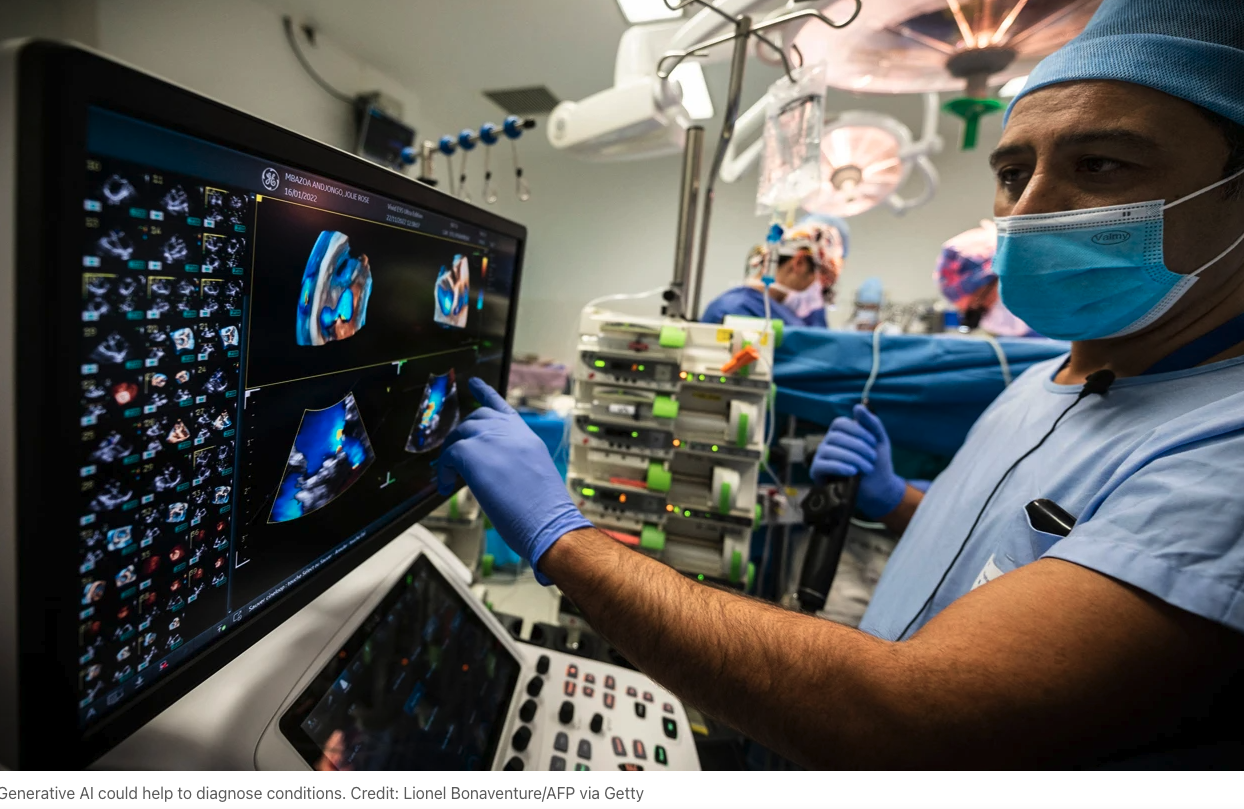LLM Application for Health Care
Paper Title
Generative AI could revolutionize health care — but not if control is ceded to big tech

Authors
Augustin Toma et. al.
Affiliations
Vector Inst et. al.
Date
Nov 30, 2023
Abstract
Large language models such as that used by ChatGPT could soon become essential tools for diagnosing and treating patients. To protect people’s privacy and safety, medical professionals, not commercial interests, must drive their development and deployment.
5Ws
1. What is the problem?
The main problem discussed in the paper is the integration of large language models (LLMs) like GPT-4 and Google's MedPaLM into healthcare for tasks like diagnosing diseases, producing clinical notes, and assisting in treatment plans. The paper emphasizes the need for a cautious approach in deploying these generative AI models in healthcare due to privacy, transparency, and reliability concerns.
2. Why is the problem important?
This issue is crucial because LLMs have the potential to significantly transform healthcare, improving the efficiency of clinical practice, enhancing patient experiences, and predicting medical outcomes. However, the improper integration of these technologies could lead to challenges like privacy breaches, biased decision-making, and reliance on opaque, proprietary systems that could be modified or withdrawn without notice, potentially undermining patient care and safety.
3. Why is the problem difficult?
The difficulty lies in several areas:
- Data Privacy and Security: Ensuring patient confidentiality and preventing sensitive data leaks is challenging, especially if medical records are used for training the models.
- Bias and Inequality: Models could exacerbate biases around gender, race, disability, and socioeconomic status, as they are trained on vast internet data.
- Evaluation and Reliability: It's challenging to evaluate the safety and accuracy of these models. Their complex nature and the vast amount of data they're trained on make it difficult to understand and predict their behavior in real-world medical settings.
- Dependency on Proprietary Systems: There's a risk of becoming overly dependent on corporate-controlled, non-transparent AI systems, which might not always align with the best interests of healthcare.
4. What are the old techniques?
The paper doesn't explicitly detail "old" techniques but implies traditional healthcare practices without the integration of advanced AI and LLMs. These would include manual diagnostics, record-keeping, and patient care practices that rely heavily on human expertise and conventional data management systems.
5. Advantages and disadvantages of the new techniques?
Advantages:
- LLMs can improve the efficiency of clinical practice by automating tasks like note-taking and form filling.
- They have the potential to enhance patient experiences by providing more accessible and understandable medical information.
- LLMs can assist in making accurate diagnoses and treatment plans, potentially surpassing human performance in some areas.
Disadvantages:
- Risk of data privacy breaches and the challenge of ensuring patient confidentiality.
- Potential to exacerbate biases and inequalities in healthcare.
- Difficulty in evaluating and ensuring the reliability and safety of AI systems in medical settings.
- Risk of dependency on proprietary, opaque AI systems controlled by corporate interests, which could lead to instability in medical care provision.
6. Conclusion
In conclusion, while LLMs offer promising advancements in healthcare, their integration needs to be handled with a focus on transparency, patient safety, and equity to avoid potential negative repercussions.